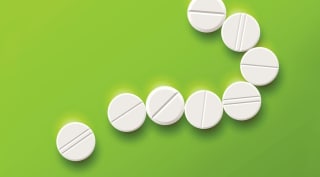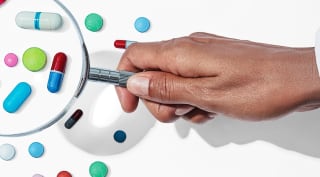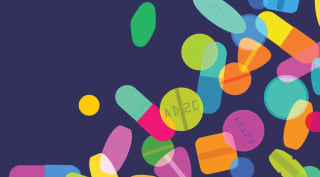With half of Americans regularly taking prescription medication—four, on average, according to a nationally representative Consumer Reports survey of 1,947 adults—a medication "checkup" can reduce your risk of side effects and interactions, and stop you from taking unnecessary pills.
A comprehensive review can help "remove medications you might no longer need and identify problems that you might be having with your medications," says Michael Steinman, M.D., a professor of geriatrics at the University of California in San Francisco. "It can also help identify alternative, sometimes less expensive strategies for treating your condition that are just as effective."
In our survey, more than half (52 percent) of prescription drug takers said they had never asked their healthcare provider whether they could stop taking one or more of their medications. Of those who had asked, three-quarters said their provider was able to help them reduce the number of drugs they were taking.
So read the following questions, then mark Saturday, Oct. 21, National Check Your Meds Day, on your calendar. Pharmacists across the country can help you look for duplicates and drug interactions, and discuss with you less expensive, safer drugs, or even nondrug alternatives.
A number of pharmacies, including Albertsons, Costco, CVS, Sam’s Club, Target, Walmart, and many independents, have agreed to support this effort, so be sure to ask your local pharmacy whether it's participating.
And if you can't head to a drugstore on National Check Your Meds Day, set up an appointment for another day. Many pharmacies will work with your schedule or even take you on the spot and free of charge.
Some pharmacies and doctors might charge for full reviews, but usually the cost will only be your regular insurance co-payment. Medicare allows free yearly reviews with a doctor, and for many Medicare Part D patients taking multiple meds, a pharmacist, too.
Here’s what to know before you go.
Gather All Your Meds
To prepare for your review, put everything you take in a bag, including prescription and over-the-counter drugs, plus vitamins and dietary supplements.
To avoid confusion and so that the pharmacist can easily see the instructions for each and spot any duplicates, Steinman recommends bringing in all of the original containers as well as any medication organizers, such as pillboxes, you're using.
It’s a good idea to have a thorough log of everything you take, and bring it with you to the pharmacy. Include the shape and color of your meds, dosage and schedule, the reasons you take them, the name of the prescribing physicians, and special advice, such as whether you should take them with food or drink.
An up-to-date list of medications, what they're for, and the dosage will benefit both patients and their providers, Steinman says.
Questions to Ask Your Pharmacist
If you have questions or concerns about your drug regimen, now is a good time to raise them. These seven questions below are a good start:
1. What is this medication for? It might seem obvious, but asking that basic question reduces the risk of taking an inappropriately prescribed drug, something that happens surprisingly often. A 2014 study in the Journal of General Internal Medicine found that among more than 462,000 patients age 65 and older, half of them were taking one or more unnecessary, potentially dangerous prescription, including inappropriately high doses and drugs with interactions.
2. What are the possible side effects? Being aware of them can help you spot them before they cause serious harm. In our survey, an astounding 44 percent of prescription users said that they had an adverse reaction to medicine they were taking, and a quarter of them said it landed them in an ER. And if you’re fully aware of drug side effects, you’ll be less less likely to confuse them with a new health condition.
3. Will this medication interact dangerously with other prescriptions or OTCS, or any foods or drinks? The more medications you take, the greater the likelihood of drug interactions. The popular blood thinner warfarin (Coumadin), for example, interacts with many other medications, supplements, and even food, reducing or enhancing the drug’s effects. And drinking grapefruit juice while taking cholesterol-lowering statins such as atorvastatin (Lipitor and generic) and pravastatin (Pravachol and generic) can cause increased side effects.
4. Is this similar to another drug I already take? If you see several healthcare providers, some might be unaware of what others have prescribed and could prescribe drugs similar to ones you already take. In our survey, more than half of regular prescription-drug users said more than one doctor prescribed their medicines.
5. Do I still need to take this? Asking this can help the pharmacist spot meds you regularly take that should only be used short term. For example, taking proton pump inhibitors such as esomeprazole (Nexium, Nexium 24HR) and omeprazole (Prilosec, Prilosec OTC) every day for a year or longer can increase your risk of bone fractures and can cause low blood levels of magnesium, which can trigger muscle spasms, an irregular heartbeat, and seizures. These potent drugs have also been linked to a higher risk of heart attacks, kidney disease, and dementia.
6. Is there a nondrug alternative that works just as well or better? In some cases you might be able to eliminate or reduce your need for drugs by making certain lifestyle changes. And there a handful of “prediseases” that are almost always best treated with nondrug options first. For example, research shows that cognitive behavioral therapy is a consistently effective way to treat insomnia without the side effects of pills.
7. Is there a less expensive medication that works just as well or better? Consumer Reports’ previous surveys have found that doctors often don’t consider the cost of drugs they prescribe. Don’t hesitate to ask about less expensive but equally effective alternatives, including generic versions.
One More Thing
Whenever possible, fill all of your prescriptions at one pharmacy or pharmacy chain. They usually share the same electronic record-keeping system, so a pharmacist will always know which medications you take and can more easily flag potential problems.
Editor's Note: This special report and supporting materials were made possible by a grant from the state Attorney General Consumer and Prescriber Education Grant Program, which is funded by a multistate settlement of consumer fraud claims regarding the marketing of the prescription drug Neurontin (gabapentin).





